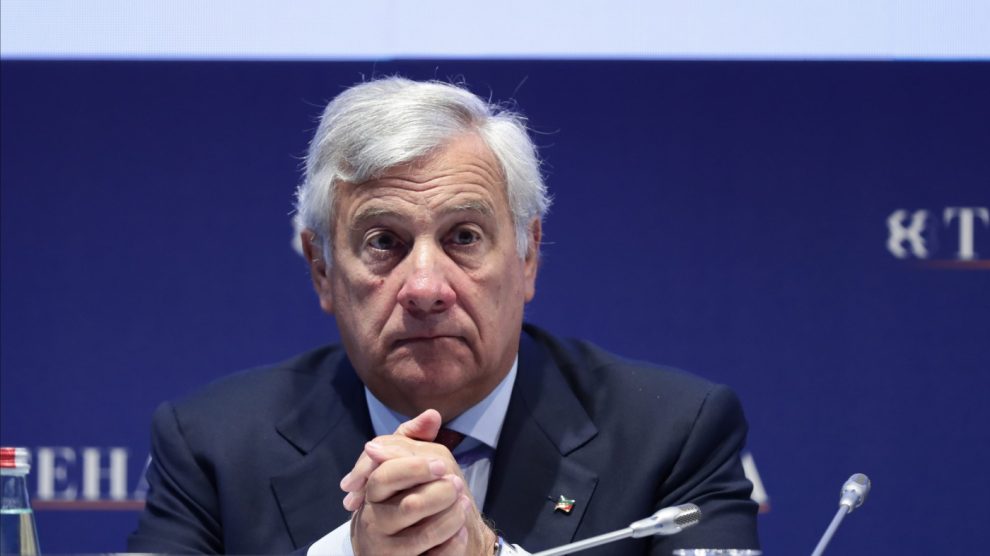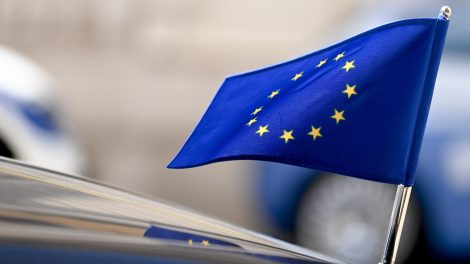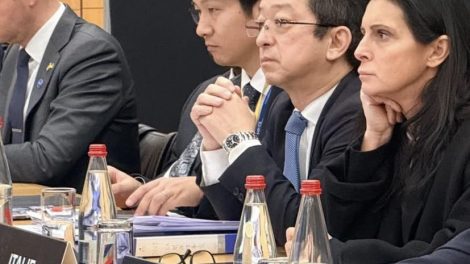In an interview with Il Mattino, Foreign Minister Antonio Tajani outlined the country’s key priorities.
Why it matters: Tajani’s approach is pro-European yet autonomous. While working closely with Brussels and Washington, he emphasises Italy’s role as a stabilising power in the Mediterranean and Africa.
- His concept of “growth diplomacy” links security with development, aiming to turn the Mediterranean from a frontier of crises into a platform of opportunities.
Security first. “The danger in Mali is twofold, because jihadists and supporters of the Islamic State aim to take control of the government.” Tajani describes a key Sahel country where instability risks spreading across the region.
- “For days, they blocked the flow of fuel tankers from Atlantic ports to this landlocked country. There is tension and concern for the foreign communities in Bamako.”
- He warns that “the secondary risk is that from Mali, the jihadist threat could strengthen in other Sahel countries,” underlining Italy’s role in preventing the spread of Islamist terrorism.
- Rome recently completed a delicate mission in West Africa and continues to maintain its presence across the Sahel.
Fight terrorism and beyond. “We are in Sub-Saharan Africa to fight terrorism and to protect the security of our citizens and our companies. We defend our idea of an equal political partnership with those countries.” Tajani adds:
- “Our security cooperation plans include a critical mission: in Niger, 350 of our soldiers are training the army and police officers. Niger plays a fundamental role, geographically, as it lies north of the country, and after that, there is Libya. We all know how strategic relations with Libya are for Italy. The Agadez region must be kept under control, as it is the hub through which weapons and illegal trafficking pass.”
Between the Lines: The issue intersects with international developments: President Trump has announced a new offensive against jihadism in Nigeria, threatening to suspend U.S. aid and considering military action to stop the persecution of Christians.
- The Nigerian government rejected the accusations, but the move underscores how Africa has returned to the centre of Western security strategies.
Growth diplomacy. “Italy is viewed with great favour and appreciation by African countries,” says Tajani, emphasising that Rome promotes cooperation based on development and investment rather than dependence or aid.
- Among ongoing initiatives, he cites the “Partnership Program” and agreements with Senegal, which, since January 2025, has been a partner in the Mattei Plan. Rome also aims to strengthen its role in the EU Global Gateway, countering what Tajani calls the “neo-colonialism pursued by China and Russia.”
- “We are focusing on growth diplomacy, and our goal of reaching €700 billion in exports by 2027 remains confirmed.”
- “The figures for extra-EU exports confirm that Made in Italy products are strong, in demand, and appreciated in new markets in Asia, India, Japan, the Middle East, and Mercosur.”
- “Together with EU Commissioner Maroš Šefčovič, we are working to ensure that some product categories – steel and aluminium – benefit from tolerable U.S. tariffs. For others, such as wine, we are working toward full exemption. We also have a deep dialogue with President Ursula von der Leyen, including within the EPP, to revise the EU budget, particularly on agricultural funds and cohesion resources.”
Tajani thus connects security and growth. Protecting Italian citizens and companies abroad is part of a comprehensive strategy that combines cooperation, diplomacy, and deterrence. The return of Africa to the global agenda, also driven by U.S. initiatives, makes Italy a key interlocutor between the Global North and South.
Global crises watch. From African instability to tensions in the Middle East and Latin America, Tajani describes a fragmented geopolitical landscape.
- In Sudan, he calls it “a hidden catastrophe we must address; the massacre of civilians must be stopped.” Regarding the U.S.-Venezuela crisis, he defines it as “a very complex situation” and reiterates that Rome has not recognised “the election results claimed by Maduro.”
- On the fragile Gaza truce, Tajani says that “efforts and results achieved so far must be encouraged,” recalling Italy’s presence “with military and diplomatic staff in the CMCC, the U.S.-led centre working to advance the truce and stabilise the Strip.”
- Finally, on Ukraine, he warns: “Putin is intensifying attacks in Donbas to gain more favourable negotiating positions after three years of modest military results. Chinese involvement will be crucial to launch a ceasefire and a stable peace process.”
So, what’s next:
- Strengthen Italy’s presence in the Sahel and Central Mediterranean.
- Consolidate the Mattei Plan as a geopolitical and security instrument.
- Maintain balance among the EU, the U.S., and regional actors.
- Advance a “growth diplomacy” that ties stability to development.





